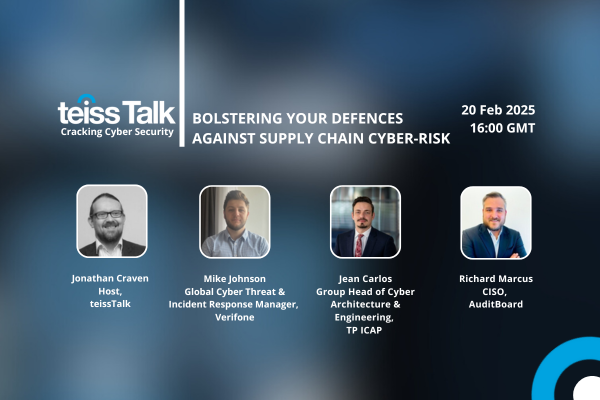Inside the mind of a cyber-criminal

Paige Mullen at Advanced Cyber Defence Systems explains why cyber-crime continues to spike
When it comes to cyber-security, it’s imperative that we stay one step ahead of the cyber-criminals. Business leaders and cyber-security professionals must anticipate a cyber-criminal’s next move, the next potential attack surface, the next exploitable vulnerability.
Whilst critical, this can be exhausting – and unsustainable. Statistics show that 85% of security professionals anticipate that they will leave their role due to burnout, and nearly a quarter of those respondents said that they’ll leave cyber-security entirely. With a sizeable skills gap and significant issues with staff retention, business leaders cannot afford for this to be the case.
But what if we take a step back and get into the mindset of the cyber-criminal? Criminology may just be cyber-security’s secret weapon.
Why is cyber-crime so appealing?
According to Crime Opportunity Theory, many criminals choose to commit crimes that are relatively low risk but return a high reward. Most criminals would not go ahead with the crime if there was not a big enough reward for doing so and if there was a high chance of being caught.
When it comes to cyber-crime, the invisibility of committing a crime entirely online and behind a screen makes the operation that little bit more attractive. It appears that there’s a reduced likelihood of being caught compared to committing a physical crime. Unsurprising, only 3 in 1000 cyber-incidents reported to the FBI in the US actually lead to prosecution.
Cyber-crime is on the rise and growing exponentially. Research suggests that the cost of cyber-crime is predicted to hit $8 trillion in 2023 and will grow to $10.5 trillion in 2025. In 2024, what is motivating people to turn to cyber-crime?
Cyber-crime on the rise
Why do criminals commit cyber-crime in 2024? There are a number of reasons to consider including economic hardship, the rise of artificial intelligence (AI), and geopolitical tensions.
Desperate times: economic turmoil and easy financial gain
There are many factors as to why cyber-criminals get into cyber-crime, the most common being financial gain. Cyber-crime, undoubtedly, can be very lucrative with little effort, which makes it an attractive career choice. According to research, an expert cyber-criminal can make as much as £6m a year, with hacker newcomers taking in an average of £15,000 a month.
In today’s turbulent economy, it’s no wonder cyber-crime is on the rise. In fact, 11% of Brits are tempted to engage in illegal or illicit online behaviour to help manage the fallout from the cost-of-living crisis. The implications of the average person turning to cyber-crime is worrisome for cyber-security professionals. Cyber-crime no longer has a persona.
Criminal activity, whether it be cyber-crime or physical crime, tends to follow a similar pattern when it comes to certain circumstances, such as the cost-of-living crisis. During times of economic crisis, many forms of crime will likely increase, such as online fraud and phishing attacks that involve entering bank details or making payments for fake services.
AI: lowering the barriers to entry into cyber-crime
Additionally, the rise of AI has also lowered the barrier of entry into cyber-crime. As quickly as legitimate AI driven tools like ChatGPT have popped up, cyber-criminals have quickly learnt to copy and exploit them for nefarious purposes.
People without the skills and expertise to make such tools themselves can easily buy them on the dark web, becoming affiliates to criminal businesses with intricately designed hierarchies that mirror legitimate businesses.
One way that these large language model (LLM) based AI tools, like DarkGPT, can be used is to make phishing emails. Phishing is known to be the cause of over a third of all cyber-attacks making it the most popular attack type for cyber-criminals because it offers a high return on investment (ROI). These sorts of attacks are very cheap and easy to do, but they can result in high financial gain, a win-win for the attackers.
AI makes these sorts of social engineering attacks even more enticing because it further reduces the workload for the attacker. It can also design emails to be highly personalised. Whilst AI hasn’t quite got the edge on human-crafted phishing, over time these emails will become even more sophisticated, especially as they grow and adapt with use.
Geopolitical tensions: hacktivism and nation state attacks
Since the start of the Ukraine/Russia conflict, Ukraine’s government have reported that cyber-attacks have tripled. This exemplifies how, in many ways, cyber-warfare has become the latest frontier of attack. It is likely that nation state and hacktivist attacks will continue to rise, with tensions peaking globally. These attacks are typically motivated by social or political ideologies.
There are other reasons as to why cyber-criminals commit cyber-crime, such as corporate espionage, personal revenge, and just wanting to crack the challenge of breaking into apparently secure companies. But how does understanding why cyber-criminals commit cyber-crime actually benefit those fighting it?
Getting into the mind of a cyber-criminal
There’s a reason why many ex-black hat hackers turn to ethical hacking. Those who have been there can step into the shoes of an adversary easily. Although it is difficult to stay ahead of the cyber-criminals, trying to get into their mind to figure out why they are choosing particular methods of attack, what is motivating them in this current climate, and focusing on growing trends in the world of cyber-crime can potentially be a secret weapon the cyber-security world.
From studying and deconstructing attacks to intimately understanding a threat group, cyber-criminologists can track patterns that can be fed back to developers and engineers and be used to inform tools, bolster threat intelligence, and alert the wider community. Ultimately, an outside perspective can also keep theories fresh.
Getting into the mind of a cyber-criminal is an advantage of criminology-focused insight. However, criminology can also be used to analyse the victims of crime, which, in turn, can be used to spread awareness. Cyber-security is about making the wider community more secure.
Similarly, cyber-criminology examines the intersections of technological, legal, and social measures which can be used to prevent, respond to, and raise awareness of cyber-crime. Whilst more academic than, say, a threat researcher role, cyber-criminology brings together the academic and practitioner communities.
It relies on an understanding of the human aspect of cyber-crime, which informs and addresses initiatives going forward. Cyber-criminals are, after all, only human.
Paige Mullen is a criminologist and cyber-crime advisor at Advanced Cyber Defence Systems
Main image courtesy of iStockPhoto.com
Related Articles
Most Viewed
The Expert View: Combatting Cyber-Threats at ScaleSponsored by Infoblox
Six key takeaways from CISOs on AI’s role in securitySponsored by Tines
How putting IT teams back in control can help reduce downtimeSponsored by ManageEngine
Tackling the cyber-threatSponsored by ManageEngine
Developing the foundations of resilienceSponsored by Zscaler
The necessity of API security for B2B fintechsSponsored by Raidiam
The Expert View: Achieving SaaS Security ExcellenceSPONSORED ARTICLE
The Expert View: Keeping Ahead of the HackersSponsored by Ekco
Winston House, 3rd Floor, Units 306-309, 2-4 Dollis Park, London, N3 1HF
23-29 Hendon Lane, London, N3 1RT
020 8349 4363
© 2025, Lyonsdown Limited. teiss® is a registered trademark of Lyonsdown Ltd. VAT registration number: 830519543




